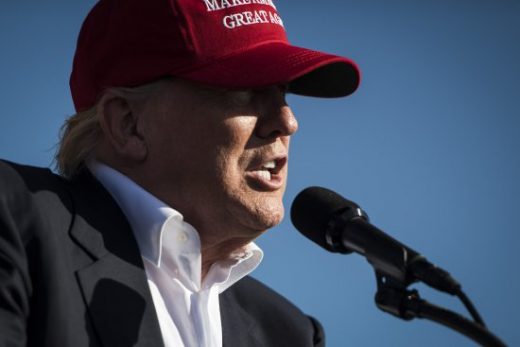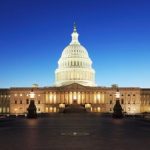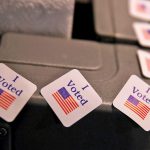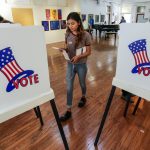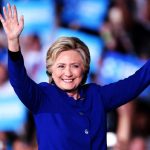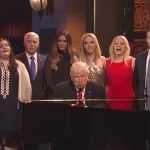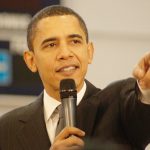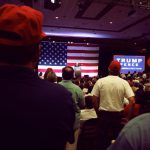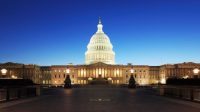How One Swing State Is Responding to ‘Rigged Election’ Talk
How One Swing State Is Responding to ‘Rigged Election’ Talk

The warnings about election fraud came in fast and loud in North Carolina.
Republican presidential nominee Donald Trump spent the summer and fall claiming that Democrats would rig the presidential election. “You won’t vote 15 times, but people will,” Trump told a crowd in Wilmington in August. “They’ll vote many times.”
Then in early October, the vice chair of the local GOP in the home of the state capital of Raleigh, sent a letter to local party activists, warning that fraud could be rampant at county precincts.
“It is not an exaggeration to say the left is targeting Wake County,” Wake County Republican Party vice chair Charles Hellwig said in his letter. “They will stop at nothing and registering dead people or falsifying voter information is simply a ‘means to an end’ for them.”
Meantime, there was concern on the other side about voter ID laws and voter purges suppressing Democratic turnout. With little more than a week to go before the election, the NAACP filed a suit against the North Carolina Board of Elections alleging that thousands of voters in nearby counties, primarily African-Americans, had been purged from the voter rolls.
“This is our Selma, and we will not back down and allow this suppression to continue,” said the Rev. William Barber, president of the North Carolina chapter of the NAACP.
From all sides, the message was clear: the fairness of the election was up for grabs.
Wake County, a large Democratic-leaning district in a 2016 battleground state, is like hundreds of counties across the country where faith in the election has been shaken by unusual laws and incendiary election-year rhetoric.
Officials are trying to conduct a normal election in extraordinary circumstances, relying on tried and tested rules to monitor the poll and shore up public trust. In Wake, concerns may matter more than elsewhere: it is North Carolina’s second-biggest county, and if Clinton wins the state, it will be in part thanks to high turnout there.
Local election officials in Wake County are seeing a large uptick in phone calls from voters worried about fraud.
“No matter what we do, every election there are going to be people that question the process,” said Gary Sims, the director of the county’s board of elections. But “this is a different environment. It’s getting more of a spotlight than it has in the past.”
Local officials and local party leaders are working overtime across the country to ensure the sanctity of the vote. In Wake County each polling site has three special county officials, as well as additional assistants helping to oversee the voting in each precinct. The officials cannot all be of the same party.
The local Democratic and Republican parties play a role, too. In North Carolina, each party is permitted to have two poll observers inside each of the county’s 202 precincts and 20 early voting sites to monitor the proceedings. The observers are usually Democratic or Republican unpaid volunteers who are drafted by their party, given training by their party’s county officials and sent to do a shift at a voting site. Each party is allowed an additional 10 at-large monitors who are not assigned a particular voting site.
At the polling sites, the partisan volunteers are allowed to observe registration and balloting and obtain lists of voters. If they have concerns they can report to nonpartisan county elections offficials. They are not, however, allowed to speak to voters, distribute campaign material or enter voting booths.
Outside polling places, the parties are allowed to send greeters to talk to voters and hand them a list of candidates they recommend voting for from president to county, but those volunteers are not permitted within 50 feet of the polling place. The rule is meant to protect against voter intimidation.
In addition, the ballot counting machines in Wake are repeatedly tested, Gary Sims of the county’s board of elections explained. Officials try dozens of voting combinations on different ballots on each machine before they are rolled out for early voting.
Fears have been stoked about busing in voters from outside the county, especially when voters can be seen getting out of vehicles to cast ballots at the side of the curb. But it turns out they are handicapped curbside voters, a fact that election officials had to explain to suspicious residents who called to complain..
So far, elections officials in the county say, so good. But around the edges, other fears of misconduct are mounting.
North Carolina is one of more than 40 states that allows private citizens to challenge voters’ eligibility. That flared up in recent claims that officials in nearby were canceling voter registrations of thousands of black North Carolinians, residents who election officials said had appeared to have moved addresses. The NAACP filed suit on Oct. 31 and is asking a federal court for an injunction before Election Day.
Democrats have teams of volunteer lawyers and law students who ensure registered voters are able to vote, that ballots are available and polls stay open, and watch for voter intimidation.
“We’re in situation now where there’s so much focus being put on the validity of the election that that hyper vigilance can lead to issues,” said Brian Fitzsimmons, chair of the Wake County Democratic Party. “I cant say we’re expecting problems but we’re preparing in case they happen.”
Even in a tense environment, there have been no credible reports in Wake of wrongdoing. In fact, the county’s Democrats and Republicans enjoyed a moment of harmony last month during early voting when they found their poll greeters—who carry all-important slate cards with lists of each party’s candidates—were unable to get close to the polling center.
The state’s 50-foot rule, prohibiting party volunteers from getting close to the precincts, was being applied to curbside voting as well. Fitzsimmons, the Democratic chair, phoned the Republican Party office to sort out a solution. Both parties worked with local officials to fix the rule.
“The fact of the matter is that this vitriol we’re seeing publicly in this campaign is not necessarily occurring between people on the ground,” Fitzsimmons said.
The Republican Party vice chair, Charles Hellwig, who wrote the strongly worded letter warning about voter fraud, said that in retrospect voting has been going just fine.
“Hopefully it turns out my rhetoric was extra strong and not needed,” Hellwig said.
(35)

